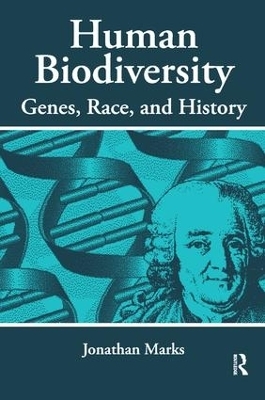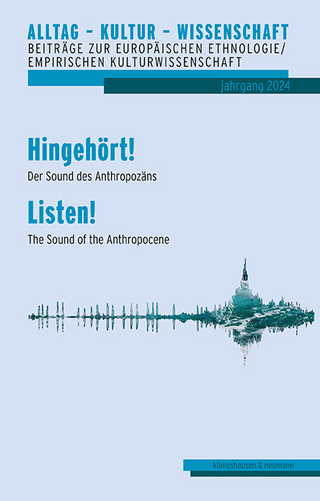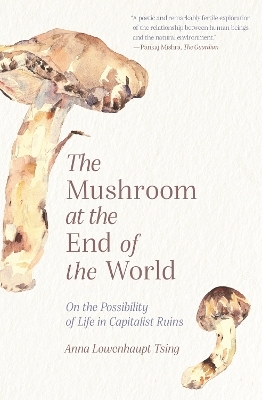
Human Biodiversity
Genes, Race, and History
Seiten
2017
Routledge (Verlag)
978-1-138-52540-5 (ISBN)
Routledge (Verlag)
978-1-138-52540-5 (ISBN)
Are humans unique? This simple question, at the very heart of the hybrid field of biological anthropology, poses one of the false of dichotomies with a stereotypical humanist answering in the affirmative and a stereotypical scientist answering in the negative.
The study of human biology is different from the study of the biology of other species. In the simplest terms, people's lives and welfare may depend upon it, in a sense that they may not depend on the study of other scientific subjects. Where science is used to validate ideas four out of five scientists preferring a brand of cigarettes or toothpaste there is a tendency to accept the judgment as authoritative without asking the kinds of questions we might ask of other citizens' pronouncements.
In Human Biodiversity, Marks has attempted to distill from a centuries-long debate what has been learned and remains to be learned about the biological differences within and among human groups. His is the first such attempt by an anthropologist in years, for genetics has undermined the fundamental assumptions of racial taxonomy. The history of those assumptions from Linnaeus to the recent past the history of other, more useful assumptions that derive from Buffon and have reemerged to account for genetic variation are the poles of Marks's exploration.
The study of human biology is different from the study of the biology of other species. In the simplest terms, people's lives and welfare may depend upon it, in a sense that they may not depend on the study of other scientific subjects. Where science is used to validate ideas four out of five scientists preferring a brand of cigarettes or toothpaste there is a tendency to accept the judgment as authoritative without asking the kinds of questions we might ask of other citizens' pronouncements.
In Human Biodiversity, Marks has attempted to distill from a centuries-long debate what has been learned and remains to be learned about the biological differences within and among human groups. His is the first such attempt by an anthropologist in years, for genetics has undermined the fundamental assumptions of racial taxonomy. The history of those assumptions from Linnaeus to the recent past the history of other, more useful assumptions that derive from Buffon and have reemerged to account for genetic variation are the poles of Marks's exploration.
Jonathan Marks
Acknowledgments, 1. THE HIERARCHY, 2. PROCESSES AND PATTERNS IN THE EVOLUTIONARY HISTORY OF OUR SPECIES, 3. PHYSICAL ANTHROPOLOGY AS THE STUDY OF HUMAN VARIATION, 4. THE HISTORY OF BIOLOGY AND THE BIOLOGY OF HISTORY, 5. THE EUGENICS MOVEMENT, 6. RACIAL AND RACIST ANTHROPOLOGY, 7. PATTERNS OF VARIATION IN HUMAN POPULATIONS, 8. HUMAN MOLECULAR AND MICROEVOLUTIONARY GENETICS, 9. HUMAN DIVERSITY IN THE LIGHT OF MODERN GENETICS, 10. THE ADAPTIVE NATURE OF HUMAN VARIATION, 11. HEALTH AND HUMAN POPULATIONS, 12. HUMAN TRAITS: HERITAGE OR HABITUS?, 13. GENETICS AND THE EVOLUTION OF HUMAN BEHAVIOR, 14. CONCLUSIONS, Appendix: DNA Structure and Function, Index
| Erscheinungsdatum | 05.09.2017 |
|---|---|
| Verlagsort | London |
| Sprache | englisch |
| Maße | 152 x 229 mm |
| Gewicht | 453 g |
| Themenwelt | Sozialwissenschaften ► Ethnologie |
| Sozialwissenschaften ► Soziologie | |
| ISBN-10 | 1-138-52540-5 / 1138525405 |
| ISBN-13 | 978-1-138-52540-5 / 9781138525405 |
| Zustand | Neuware |
| Haben Sie eine Frage zum Produkt? |
Mehr entdecken
aus dem Bereich
aus dem Bereich
Wert, Tausch und menschliches Handeln
Buch | Softcover (2023)
diaphanes (Verlag)
CHF 39,20
Buch | Softcover (2024)
Königshausen u. Neumann (Verlag)
CHF 39,20
On the Possibility of Life in Capitalist Ruins
Buch | Softcover (2021)
Princeton University Press (Verlag)
CHF 27,90


